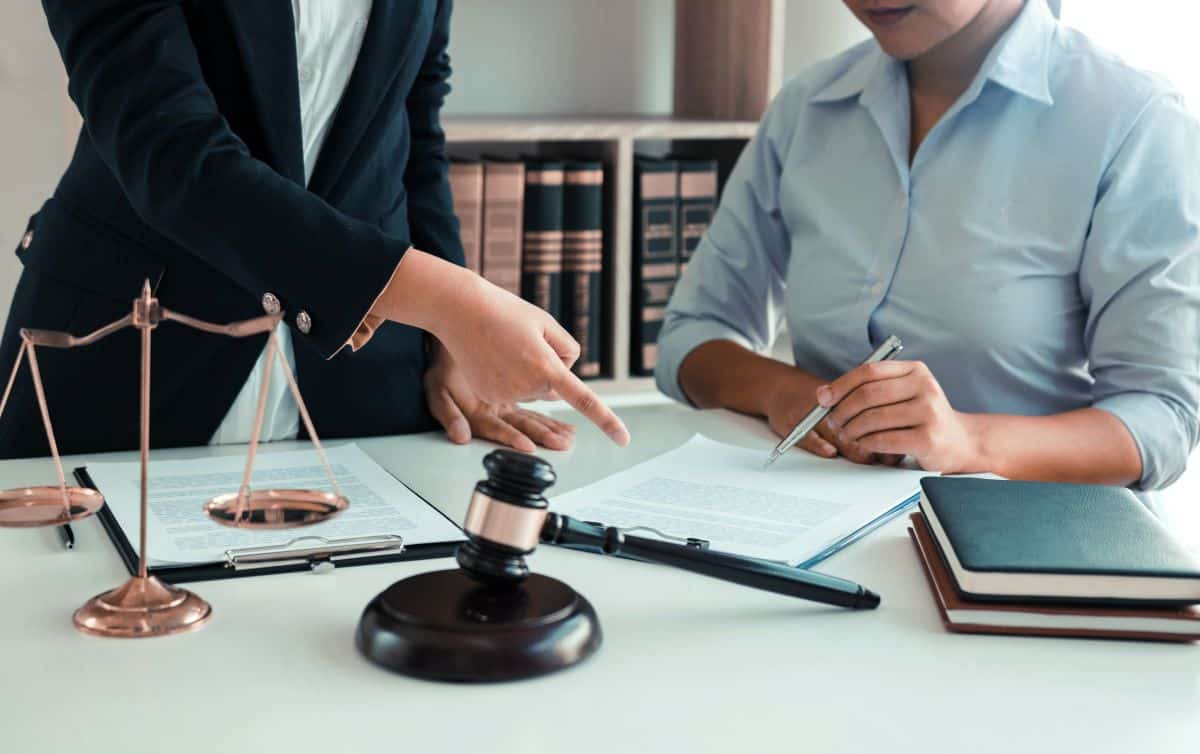
19 Feb Leading Questions – Are They Allowed in a Deposition?
Are Leading Questions Allowed in Deposition?
If you are a part of deposition and wondering if leading questions are allowed, it is best to speak with someone more knowledgeable in court cases regarding this, such as an experienced attorney.
So, are leading questions allowed in a deposition? This largely depends on the situation, type of question, and the parties involved. If you are an attorney for the party being deposed, and the other side’s attorney objects to your question as leading, you may be able to get an exception. But in most cases, if you want to preserve your right to appeal the objection, you should rephrase your question.
Leading questions are only allowed in depositions when everyone agrees that they may occur. A question is said to be “leading” if it suggests the answer or contains the information that the witness needs to make an accurate response. This form of questioning can confuse witnesses, make them feel as though they are being interrogated, and create inaccuracies. Because of this, leading questions are only allowed during depositions with everyone’s consent.
 What is a Leading Question?
What is a Leading Question?
A leading question provides the answer or suggests the answer. Leading questions are often not allowed in depositions because they do not allow deponents to give their truthful responses.
They force them to provide answers based on suggested information. If the answer is yes, the deponent will be forced (although it may be more difficult) to say no.
For example, if someone asks you during a deposition, “Didn’t you take the money?” it is better to say no than yes. That way when asked why your answer was yes (or no), you can explain that the question suggested the answer rather than letting them ask another leading question like, “How much did you take?”
If you are being deposed, your Oklahoma City attorney will advise you during the deposition about whether or not to answer leading questions. If there is no objection made to the leading question, then most likely it is okay for you to answer.
Your attorney may still want you to answer even if there is an objection made; objecting wastes time and money for everyone, but it is still the safest thing to do.
Deposition Process
Depositions involve asking specific questions to gather the information that will help your attorney build a case for you. A deposition is not traditionally an opportunity to question opposing witnesses, but rather allows an attorney to ask the other side’s witness questions related to their statements and arguments.
These questions are intended to gather facts about what happened, not opinions about what might have happened. There are some instances where leading questions may be allowed depending on who is being deposed.
For example, if one party is being deposed as part of discovery, they are subject to more liberal rules than depositions taken by attorneys of parties who have already been named in the lawsuit.
As with most questions of this nature, there are exceptions. Depositions are not intended to be hostile events, but rather an opportunity for one side’s attorney or their witness to get more information about the other side’s case.
Who Can Ask & Answer Leading Questions?
- If you are a third party who is not a party to the lawsuit, and your lawyer asks a leading question at a deposition, it might be helpful if the deponent’s attorney objects. However, that objection will usually be sustained as being beyond the scope of discovery. In those cases, it could help to ask the deponent’s attorney if he or she will agree that it is a proper question.
- If you are an attorney for a third party, and your client wants to ask more than 100 questions at a deposition, but not all of them are necessary from the perspective of his/her case, you could provide a list of proposed leading questions to the deposing attorney. They would then be free to rephrase the question if necessary or object to it if he/she feels that for some reason an objection is appropriate.
- If you are not an attorney for a party in the case, your question might violate local rules of professional conduct which prohibit lawyers from asking leading questions. Also, there are ethical issues involved if there is a question about whether your participation in the case might involve attorney-client confidence.
- If you are an attorney for a party in the case, and there has been no objection to your leading questions during deposition testimony given by witnesses who were not attorneys, it would be difficult to claim that rulings at deposition were prejudicial.
- If you are not an attorney for either party, and there is no binding authority on the subject, it might be possible to rely on online articles or treatises. Some of these sources suggest that leading questions are only improper if they reflect the examiner’s conclusion, so your proposed question would probably be okay unless it shows how you concluded.
 An Attorney’s Approach to Leading Questions
An Attorney’s Approach to Leading Questions
An attorney is permitted to ask leading questions of witnesses during direct examination, cross-examination, and recross-examination. Leading questions are questions that suggest the answer or contain the information sought by the question.
For example, “Where did you hide the gun?” would be permitted on cross-examination because it suggests the location of something whose location is in controversy. However, an attorney should not ask a witness “Did you see my client commit murder?”
The reason for this ban on leading questions (which is found in Rule 611(b) of the Federal Rules of Evidence) is that they may lead a witness into giving testimony that he need not give if asked only open-ended questions (“Can you describe what happened next?”). Thus, when proper, leading questions are permitted during trial testimony.
Generally, however, leading questions should not be used in the direct examination of a witness. This is because it frequently permits the opposing party’s attorney to cross-examine answers that might otherwise not be revealed until the information sought is obtained through more open-ended questioning.
If you caught somebody stealing your car and asked them “Where is my car?” that question would be construed as an indirect attempt to elicit incriminating evidence against that person. The answer to this question would likely bring out the fact they were committing theft.
There is no reason for this information to come out early in trial proceedings if it can better be developed later during cross-examination. Thus, although leading questions are permitted during direct examination, their use should be limited to those situations that are not conducive to open-ended questioning.
Reasons Why Leading Questions Are Risky
There are several reasons leading questions are risky. These include the following:
- They tend to produce testimony that is more accusatory than informative.
- Their use during the direct examination can lead to extensive or cumulative testimony. This can be confusing and serve only to irritate the jury.
- If asked of a key witness early in trial proceedings they may elicit adverse testimonial responses from the opposing party’s witnesses. They will become increasingly hesitant as leading questions continue throughout the case.
- An attorney should avoid asking leading questions unless he or she plans on developing information through cross-examination that might otherwise never be brought out at all if this form of cross-examination were omitted entirely. This last concern lays the groundwork for this article.
Leading questions are dangerous because an attorney does not know how a witness will respond to them. If the opposing party’s attorney objects, the witness is called upon to answer without an explanation from either side of why leading questions are being asked.
Thus, if you had earlier testified “I did not see my neighbor leave his house on July 4th” and then were asked, “Did your neighbor wear blue clothes when he left on July 4th?” it might be construed as a thinly veiled attempt at extracting an incriminating response.
The danger of asking leading questions can best be understood by contrasting them with open-ended questions that include inflection (“Did you see my client commit murder?”) or statements that require only a “yes” or “no” answer (“Was my client present when you were robbed?”).
 In Conclusion
In Conclusion
In conclusion, a recent article on the website of Chicago Daily Law Bulletin discusses everything that litigators need to know about leading questions in a deposition, including why it’s important not to ask them. A ‘leading question’ describes a question framed in such a way as to lead witnesses to answer in a certain way.
The authors say that this doesn’t happen very often, but it does happen from time to time. The unconscious tendency of lawyers to frame their questions in a way that will lead witnesses to a certain answer is a “huge problem,” according to the authors. If a leading question is required to be answered, all parties must give consent before the question is answered.
There are many possible factors to consider if you are contemplating asking leading questions in a deposition, or objecting to someone else’s question at deposition. Depending on the facts of your situation, the local rules, the court’s ruling, and other variables, it could be helpful for you to speak with an attorney who specializes in depositions about this question, or any other issue you are confronting in a deposition.





